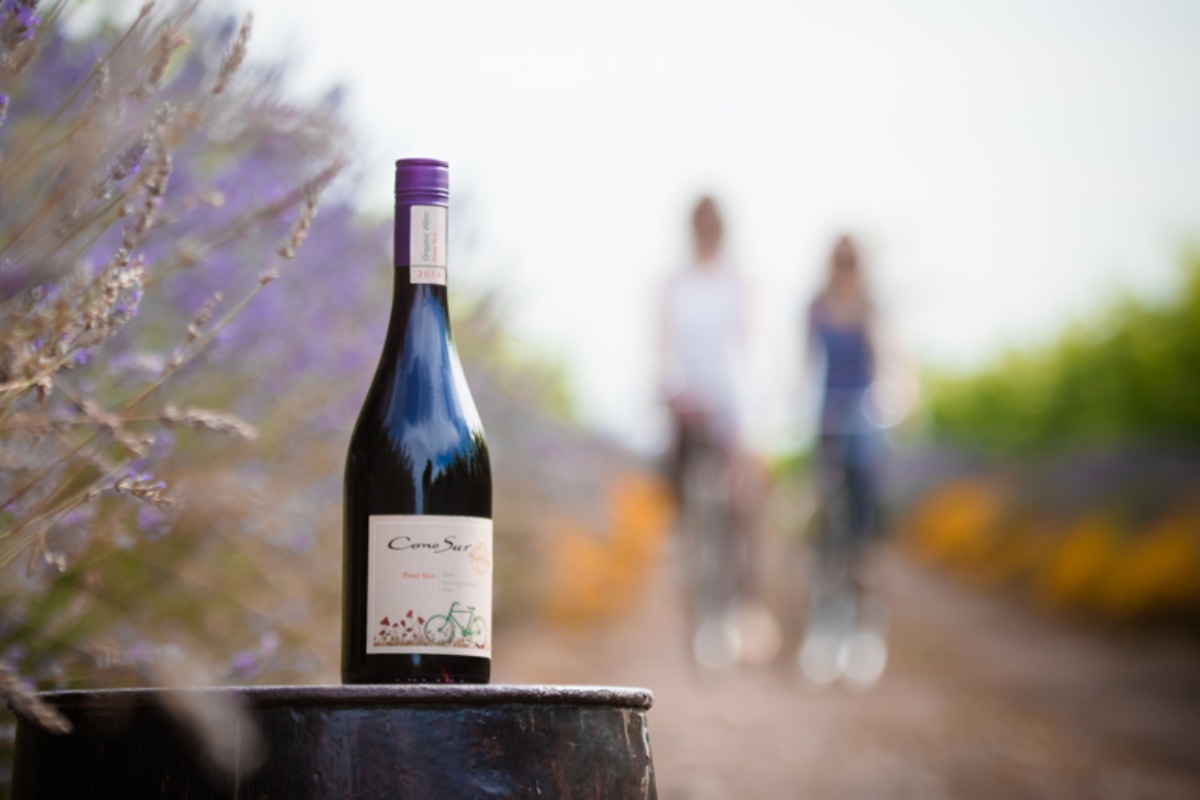This is how Cono Sur Organic wines are produced
Currently, Chile is the leading wine exporter from the New World, and the fourth worldwide. The previous is due to factors such as the quality of the soils and climatic conditions that allow Chile to produce sustainable wines, capable of responding to the expectations of the most demanding palates.
Aware of being located in a true wine-growing paradise, Cono Sur started its organic project in the year 2000, seeking to deliver high quality wines while being environmentally responsible. Today this commitment is reflected in the recognition Chilean Wine Producer of the Year, awarded by IWSC for two consecutive years, and in the Drinks International’s rank of the Most Admired Wine Brands, where Cono Sur is featured in the 11th place.

Organic wine: the keys to obtain a quality product
Cono Sur has 300 organic hectares and vast experience in organic management. In 1998 the winery decided to change is agriculture method from conventional to integrated vineyard management, a system that favors the use of natural alternatives for fertilization, prevention and control of pests and diseases.
In the year 2000, Cono Sur began the transition to organic management, starting with 40 hectares in Santa Elisa Estate, the main property located in Chimbarongo. Organic regulations require the absolute absence of chemicals for at least 3 years – hence the term transition period – before certifying the fruit from a specific vineyard as organic. This temporary requirement was fulfilled with the 2003 vintage, the year in which we made the first harvest of organic grapes. The certification to date is granted by the German company BCS Oeko Garantie GMBH
The production process
The process of vinification of organic wines –like the Organic Pinot Noir-, is very similar to that of a conventional wine.
The plant has the same maturation cycle, which ends in the harvest season (February to May, depending on the variety). Then, the grape goes through an alcoholic fermentation, followed by a period of storage. Finally, the wine is bottled and shipped to its different markets.
The big difference is in the vineyard, in which the grapes are required to be 100% free of chemical agents and the winery’s goal is to continue incorporating new surfaces under this cultivation system.
In order to maintain a healthy environment for the vines, Cono Sur promotes biodiversity inits estates, through the creation of biological corridors or planting native species, in addition to having a natural pests control. For example, we have a greenhouse where we carry out the growth process of different natural plants in the area, which are then taken to the biological corridors and other parts of the vineyards. In addition, we have geese that are responsible for controlling the population of burritos and other insects, potentially harmful to the vine.
Additionally, all the plants are fertilized with natural compost, which is incorporated into the water reservoir and applied to the plant through the irrigation system.
Sustainability: a commitment to the environment
At Cono Sur we are committed to caring for the environment:
- We comply with the Clean Production Agreement of the wine industry in its two versions.
- We compensate all greenhouse gas emissions associated with the transport of our wines.
- We measure, report and certify the carbon footprint of our organization.
- We implement and certify the Sustainability Code of the wine industry.
- We certify a safety and health management system at work.
- We certify an energy management system
Currently, we are developing a Social Responsibility management system, which we hope to certify promptly. Everything, to strengthen our commitment with care of the planet, since factors such as land, climate and water are determining factors to obtain sustainable wines of world quality.